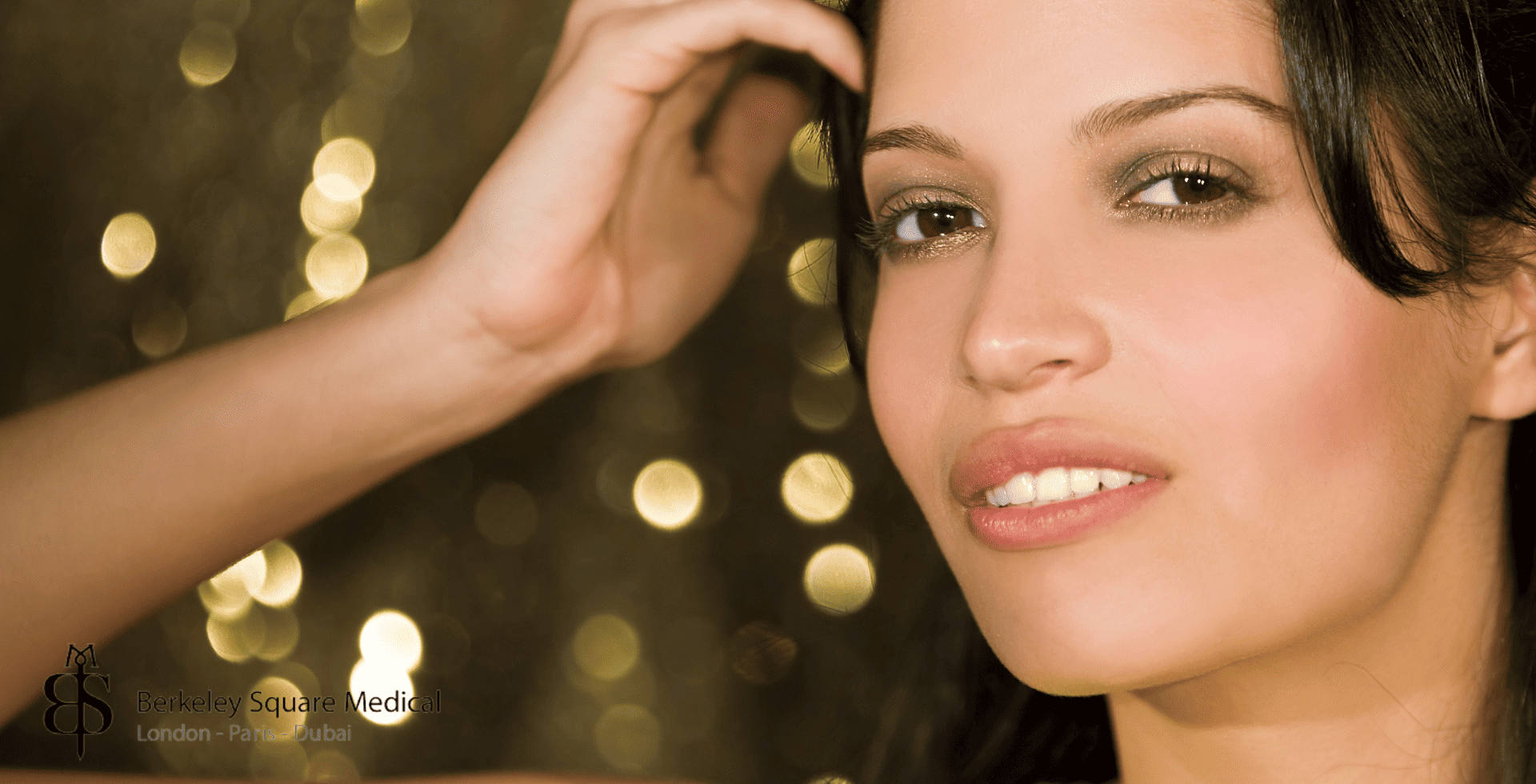In Venezuela, the annual Miss Venezuela beauty pageant (1) is more than just a cultural event; it’s a national obsession that shapes the country’s perceptions of beauty and femininity. Revered as the most successful beauty pageant in the world, it wields an immense influence over the aspirations and self-image of many Venezuelan women.
Yetzabel Utrera, a 19-year-old Venezuelan, exemplifies this phenomenon. Since the tender age of six, she, like countless others, has been captivated by the pageant, drawn to the allure of its contestants and the glamour they represent. This fascination, however, comes with a profound impact: a growing inclination among Venezuelan women to undergo cosmetic surgery in pursuit of an idealized beauty standard.
Despite facing significant economic challenges, Venezuela boasts one of the highest rates of cosmetic surgery per capita in the world, a testament to the lengths to which its citizens will go to emulate the pageant’s beauty ideals. This trend raises critical questions about the societal implications of such a powerful cultural phenomenon.
The Cultural Impact of Miss Venezuela
The Miss Venezuela beauty pageant, with its history stretching back over decades, has become an emblematic feature of Venezuelan culture. Its influence permeates through various layers of society, defining and reshaping notions of beauty and femininity.

Historical Context and Significance
- Origins and Evolution: The pageant, which began as a simple beauty competition, has evolved into a highly anticipated annual event. Its history is intertwined with the cultural and social evolution of Venezuela, reflecting changing beauty standards over time.
- National Pride and Global Recognition: Venezuela’s success in international beauty pageants, largely credited to the training and selection process of Miss Venezuela, has instilled a sense of national pride. The country boasts an impressive record of international pageant victories, further cementing the pageant’s importance.
Shaping Beauty Standards
- Idealized Beauty: The type of beauty celebrated by the pageant often revolves around specific physical attributes – height, body shape, facial features – that have become deeply ingrained as the ideal standard in Venezuelan society.
- Impact on Young Women: Young women, in particular, grow up with these televised pageants as a reference point for beauty. This influence starts early in their lives, shaping their perceptions and aspirations.
Role of Media
- Amplifying Beauty Ideals: Television, social media, and print media play a crucial role in reinforcing the beauty standards set by the pageant. The constant exposure to these ideals through various media channels creates a pervasive environment where physical appearance becomes a priority.
- Celebrity Culture and Endorsements: Contestants and winners of Miss Venezuela often become celebrities, influencing fashion and beauty trends. Their endorsements of certain beauty products and procedures lend further credibility to the pageant’s beauty standards.
Through these facets, the Miss Venezuela beauty pageant emerges not just as an event, but as a powerful cultural force, shaping perceptions and behaviors. It represents a complex interplay between tradition, media influence, and societal expectations, setting a beauty standard that many aspire to, often at great personal cost.
Economic and Social Factors
The high rate of cosmetic surgery in Venezuela, despite its economic challenges, is a paradox that reveals much about the country’s social fabric and priorities. This section explores how economic and social dynamics intertwine with the pursuit of beauty as defined by the Miss Venezuela pageant.
Economic Context
- Economic Challenges: Venezuela has faced significant economic difficulties, including inflation and limited access to basic necessities for many of its citizens. This context makes the high expenditure on cosmetic procedures even more striking.
- Surgery Financing and Access: Despite economic hardships, many Venezuelans find ways to finance cosmetic surgeries, including savings, loans, or even engaging in informal work. The availability of less expensive, and sometimes less regulated, cosmetic procedures also plays a role.
The Social Value of Beauty
- Beauty as Social Capital: In Venezuela, beauty is often viewed as a form of social capital. It can open doors to better employment opportunities, social status, and even potential relationships, further incentivizing women to invest in their appearance.
- Peer and Family Influence: The decision to undergo cosmetic surgery is often influenced by peer and family expectations. In some communities, cosmetic procedures are seen as a rite of passage for young women.
Economic Benefits for the Beauty Industry
- Booming Cosmetic Industry: The obsession with beauty has fueled a thriving cosmetic industry in Venezuela. From beauty salons to cosmetic surgery clinics, these businesses benefit from the continuous demand.
- Employment Opportunities: The industry also provides employment opportunities, particularly for women, in various sectors including beauty therapy, makeup artistry, and surgical assistance.
Poverty and Prioritization of Beauty
- Contrasting Realities: The contrast between high spending on beauty and the struggle to meet basic needs in parts of the society raises questions about priorities and the societal pressures that influence these decisions.
- Cultural versus Economic Priorities: This phenomenon reflects a complex cultural hierarchy where physical appearance can sometimes be prioritized over other basic needs due to the perceived social and economic advantages.
Looking at the economic and social factors at play, it becomes evident that Venezuela’s cosmetic surgery trend is deeply rooted in the fabric of its society. The intersection of economic hardships with the high value placed on physical beauty creates a unique and sometimes conflicting narrative about what is valued and why. This section not only highlights the economic paradoxes but also brings to light the societal dynamics that drive the pursuit of an idealised beauty standard in Venezuela.
Health and Psychological Implications
The widespread pursuit of cosmetic surgery in Venezuela, influenced by the Miss Venezuela beauty pageant, has significant health and psychological implications. This section examines the risks associated with cosmetic procedures and the mental health impact of striving for an idealized beauty standard.
Health Risks of Cosmetic Surgery
- Surgical Complications: Cosmetic surgeries, like any surgical procedure, carry risks. These can include infection, scarring, and in some cases, severe complications that require additional surgery.
- Unregulated Practices: In Venezuela, the high demand for affordable cosmetic surgery has led to a rise in less regulated or informal surgical practices. This increases the risk of complications due to poor sanitary conditions or inexperienced practitioners.
- Long-Term Health Consequences: Some procedures can have long-term health implications, including chronic pain or complications from implants.
Psychological Impact on Individuals
- Body Image Disorders: The constant exposure to idealized beauty standards can lead to body image disorders. This includes conditions like body dysmorphic disorder, where individuals have a distorted perception of their appearance.
- Impact on Self-Esteem and Mental Health: The pressure to conform to societal beauty standards can negatively impact mental health, leading to issues like low self-esteem, anxiety, and depression.
- Cycle of Surgery: There’s often a psychological cycle where initial surgeries lead to further procedures. This can be due to dissatisfaction with the initial outcomes or a continuous pursuit of perfection.
Societal Pressure and Mental Health
- Cultural Expectations: The cultural emphasis on physical beauty in Venezuela can create an environment where women feel intense pressure to conform, affecting their mental well-being.
- Role of Media and Social Networks: The portrayal of beauty standards in media and social networks reinforces the desire for cosmetic surgery, often downplaying the risks and consequences.
The Role of Healthcare Professionals
- Medical Ethics and Patient Safety: Healthcare professionals face ethical considerations in balancing patient desires for cosmetic enhancements with the potential risks and long-term health implications.
- Counseling and Mental Health Support: The role of mental health professionals is crucial in providing counseling to those considering cosmetic surgery. This includes assessing their motivations and potential psychological impact.

Different Perspectives
The defense of the Miss Venezuela beauty pageant amidst the swirl of criticism is anchored in a distinct perspective that intertwines cultural tradition, economic rationale, and a specific philosophy of beauty.
Osmel Sousa, at the helm of the Miss Venezuela organization, represents this viewpoint with a candid acknowledgment that the pageant’s definition of beauty transcends natural aesthetics. He argues that enhancements, including cosmetic surgeries such as nose jobs and breast enlargements, are not just common but necessary in the realm of beauty pageants, a stance that resonates with a global trend where artificial beauty enhancements are increasingly normalized.
Supporters of the pageant emphasize its role as a cultural mainstay and a source of entertainment in Venezuelan society. They highlight the pageant as a platform that offers women opportunities for empowerment, be it through scholarships, career advancements, or a voice in social advocacy. This perspective views beauty pageants as more than just displays of physical beauty; they are seen as avenues for personal and professional growth.
Economically, the pageant is defended for its stimulative effect on various industries. The heightened focus on beauty standards bolsters the beauty and fashion sectors, driving business growth and creating employment opportunities. This economic argument presents the pageant as a beneficial entity, contributing to the broader economic landscape.
The debate surrounding the Miss Venezuela beauty pageant also delves into the complex and subjective nature of beauty standards. The defense of the pageant’s approach to beauty highlights a broader, global conversation about what constitutes beauty and the ways in which it is represented and achieved. This perspective is pivotal for a comprehensive understanding of the multifaceted nature of beauty pageants and their societal impacts, illustrating how these events intertwine with cultural expressions, economic considerations, and evolving perceptions of beauty.
Sanjay is a Senior Clinical Member at Berkeley Square Medical carrying over a decade of experience. He has assisted over 1500 surgeries carried out at the hospital supporting patients both pre and post-surgery throughout their treatment journeys. This article was written with the contribution of
Dr Taimur Shoaib, our Consultant Plastic Surgeon.
Latest posts by Sanjay Rai
(see all)
Sharing is caring!
